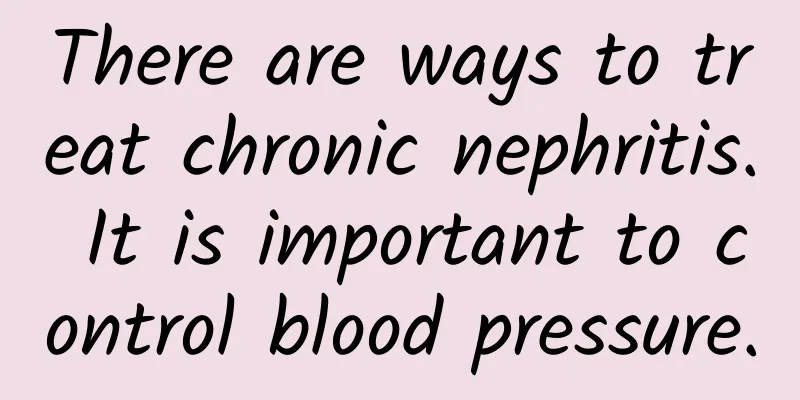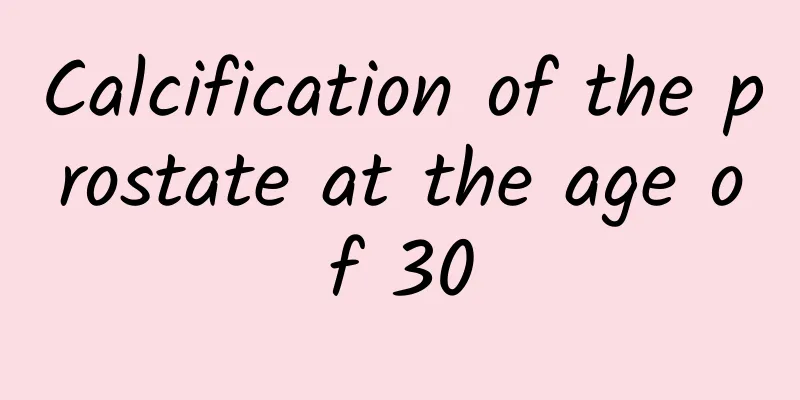There are ways to treat chronic nephritis. It is important to control blood pressure.

|
Speaking of chronic nephritis, I believe many people are particularly concerned about the occurrence and treatment of the disease. So, how should chronic nephritis be treated? Please see the introduction below. 1. Actively control high blood pressure Prevent renal function decline or improve already damaged renal function, prevent cardiovascular complications, and improve long-term prognosis. (1) Treatment principles ① Strive to achieve the target value. For example, for patients with proteinuria < 1 g/d and no cardiovascular or cerebrovascular complications, blood pressure should be controlled below 125-80 mmHg; for patients with proteinuria ≥ 1 g/d, blood pressure should be controlled at 130> (2) Treatment methods ① Non-drug treatment: Limit dietary sodium intake. Patients with hypertension should limit sodium intake to 80-100 mmol. Antihypertensive drugs should be taken on the basis of limiting sodium intake: adjust dietary protein and potassium-containing food intake; quit smoking, limit alcohol intake; lose weight; exercise appropriately, etc. ② Drug treatment: Commonly used antihypertensive drugs include angiotensin converting enzyme inhibitors (ACEI), angiotensin II receptor antagonists (ARB), long-acting calcium channel blockers (CCB), diuretics, β-receptor blockers, etc. ACEI and ARB should be preferred because they not only reduce blood pressure, but also reduce urine protein and slow down the deterioration of renal function. Patients with renal insufficiency should prevent high blood potassium and elevated blood creatinine when using ACEI or ARB. When blood creatinine is greater than 264μmol/L (3mg/dl), they must be used with caution under close observation, especially paying attention to monitoring renal function and preventing high blood potassium. A small number of patients have adverse reactions such as persistent dry cough when using ACEI, and they can be switched to ARB. 2. Reduce urine protein Delay the decline of kidney function. Proteinuria is closely related to the decline of kidney function, so it should be strictly controlled. ACEI and ARB have the effect of reducing urine protein, and their dosage often needs to be higher than the dosage required for lowering blood pressure. However, the occurrence of hypotension should be prevented. 3. Limit the intake of protein and phosphorus in food A low-protein and low-phosphorus diet can reduce glomerular hypertension, hyperperfusion and hyperfiltration, and delay glomerular sclerosis. Patients with renal insufficiency and azotemia should limit their protein and phosphorus intake, adopt a high-quality low-protein diet, or add essential amino acids or α-keto acids. |
<<: Testicular hydrocele, this is a better treatment
>>: What are some exercises that can improve sexual performance?
Recommend
What are some teas that can quickly enhance male potency and increase penis size?
Tea ceremony is a traditional culture in my count...
What is a transmissive hydrocele?
In our daily life, it is a very good choice to go...
What are the symptoms of genital blisters?
If there are abnormal conditions such as blisters...
How should adults build self-confidence?
Self-confidence is a magical power. It can bring ...
How to get rid of eye bags for men
The love of beauty is not only for girls, but als...
Why are men's testicles wet?
I would like to ask my fellow men, do you also ha...
What to do with abnormal sperm
Sperm abnormality is a health problem that has a ...
Does sperm come out with urine?
Since the male urethra has both urination and eja...
The best way to treat premature ejaculation
For the harmony of married life, if a man has pre...
How men attract women, men attract women by these
In daily life, many men have no luck with women d...
Epididymal cyst for 20 years
Patients who have had epididymal cysts for 20 yea...
What's the matter with the urine scale? Do you have too much foreskin?
As society develops faster and faster, social pre...
What are the homemade hydrating masks for pregnant women?
Many pregnant women cannot use skin care products...
What to do when your girlfriend wants to break up?
Love life is an indispensable seasoning for peopl...
How to take care of the prostate
The prostate is a very important organ for men. I...









